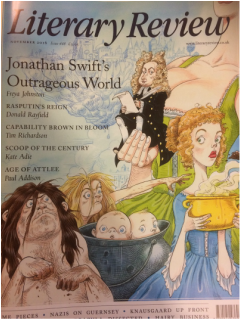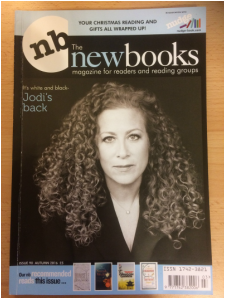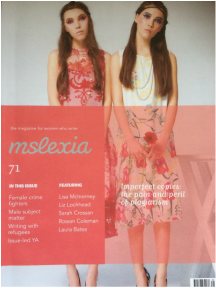Resources for Readers, Writers and Editors
Whether you’re a reader, writer or editor, it’s a wonderful thing to immerse yourself in the literary culture around you. Here are some of the many fabulous repositories of information and inspiration that I’ve come across on my editorial travels.
ONLINE
The Guardian
The Guardian online is simply fabulous for all things literary. Sign up for email updates and follow them on Twitter. The articles are varied, fresh and relevant. They’ll help you keep up to date and in the know. The quality of the writing is excellent, too.
This Itch of Writing
Sign up to a quality blog about writing. This one, from Emma Darwin, is just fantastic and is highly regarded by them what knows about these things. Read it here.
FutureLearn
Free, online, high-quality courses in nearly every area you can think of, delivered by various institutions including top universities. There are lots of courses covering history and literature, and some aimed at writers too. You can register an interest (without obligation) so that they notify you when the course you’re interested in will run again.
University Continuing Education Short Courses
Several universities run online or classroom-based short courses with tutor guidance on a range of subjects, including literature and writing. Check out university websites, looking for distance learning and continuing education pages.
Reedsy Courses
The helpful folk at Reedsy have produced a series of free, online courses about writing, publishing and marketing your work. Five minutes a day over coffee. Grand.
Reedsy Prompts
Follow @ReedsyPrompts, choose your favourite prompt, write a short story and submit it. Your story might be showcased on the blog. Really useful for firing the imagination and maybe finding that spark of an idea that you were seeking for your work.
ONLINE
The Guardian
The Guardian online is simply fabulous for all things literary. Sign up for email updates and follow them on Twitter. The articles are varied, fresh and relevant. They’ll help you keep up to date and in the know. The quality of the writing is excellent, too.
This Itch of Writing
Sign up to a quality blog about writing. This one, from Emma Darwin, is just fantastic and is highly regarded by them what knows about these things. Read it here.
FutureLearn
Free, online, high-quality courses in nearly every area you can think of, delivered by various institutions including top universities. There are lots of courses covering history and literature, and some aimed at writers too. You can register an interest (without obligation) so that they notify you when the course you’re interested in will run again.
University Continuing Education Short Courses
Several universities run online or classroom-based short courses with tutor guidance on a range of subjects, including literature and writing. Check out university websites, looking for distance learning and continuing education pages.
Reedsy Courses
The helpful folk at Reedsy have produced a series of free, online courses about writing, publishing and marketing your work. Five minutes a day over coffee. Grand.
Reedsy Prompts
Follow @ReedsyPrompts, choose your favourite prompt, write a short story and submit it. Your story might be showcased on the blog. Really useful for firing the imagination and maybe finding that spark of an idea that you were seeking for your work.
|
ON PAPER
The Guardian Online is great, don’t get me wrong. But sometimes it’s nice to have something in print in your hand during your coffee break. I love the Saturday edition of The Guardian. Literary Review A monthly magazine with reviews of fiction and non-fiction. Read about the latest titles. The quality and detail of the reviews make it a fantastic way of increasing your general knowledge too. And despite its quality, the reviews are wide-ranging; Jilly Cooper’s last novel was recently reviewed! New Books This is a quarterly magazine, aimed at readers and book clubs. It is focused on fiction, really. It’s helpful because it gives you a great sense of what’s out there and what’s coming. There are detailed author interviews. If you’re a writer, it can only help to know about the fiction market into which you hope your work will slot. Potential publishers may ask for an author to whom you might be compared (if you enjoy bla, you’ll enjoy my book – that sort of thing); so the better your knowledge of the market, the more detail you can supply. Mslexia Mslexia is a high-quality publication in terms of both content and presentation. Yes, it’s aimed primarily at writers, but it’s a treat for readers and a useful professional tool for editors and anyone else with an interest in the world of publishing. It’s informative, inspiring and up to date. It’s vibrant and fresh. It has verve. I now regard Mslexia as an important weapon in my editorial armoury. If you too love words, give it a go! You won’t be disappointed. Follow @Mslexia on Twitter to get a flavour of things. Oh, and subscribe if you can – there are perks for subscribers! Roz Morris Roz Morris is, among other things, a writer, speaker and tutor. She teaches creative writing masterclasses for The Guardian. She has written short, helpful books on writing as part of her Nail Your Novel series. Each book has a slightly different focus, but all will help you nail that novel! |
IN PERSON
Writers’ Groups
There’s a writers’ group near me, Chorley & District Writers’ Circle, that is so much more than a chance to have work reviewed by others. They organise nationwide writing competitions, produce newsletters with writing advice, publish an annual magazine of their work and provide a supportive and encouraging environment for both fledgling and experienced writers. They run workshops, invite speakers, and get involved with local literary events. Each year they organise a public event, called Write Now, and invite authors and editors to come along. I attended this year and it was great! Look for a group like this. And when you join a group, if you find that all you receive is negative and discouraging comments on your work – get out, quick! It’s not the group for you.
Literary Salons
Up and down the country literary salons have popped up to provide a forum for anyone interested in literature. Hear authors read their work, take part in workshops and meet other like-minded people. Fab.
Writers’ Groups
There’s a writers’ group near me, Chorley & District Writers’ Circle, that is so much more than a chance to have work reviewed by others. They organise nationwide writing competitions, produce newsletters with writing advice, publish an annual magazine of their work and provide a supportive and encouraging environment for both fledgling and experienced writers. They run workshops, invite speakers, and get involved with local literary events. Each year they organise a public event, called Write Now, and invite authors and editors to come along. I attended this year and it was great! Look for a group like this. And when you join a group, if you find that all you receive is negative and discouraging comments on your work – get out, quick! It’s not the group for you.
Literary Salons
Up and down the country literary salons have popped up to provide a forum for anyone interested in literature. Hear authors read their work, take part in workshops and meet other like-minded people. Fab.


